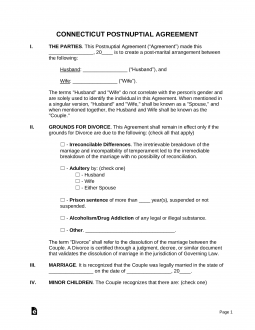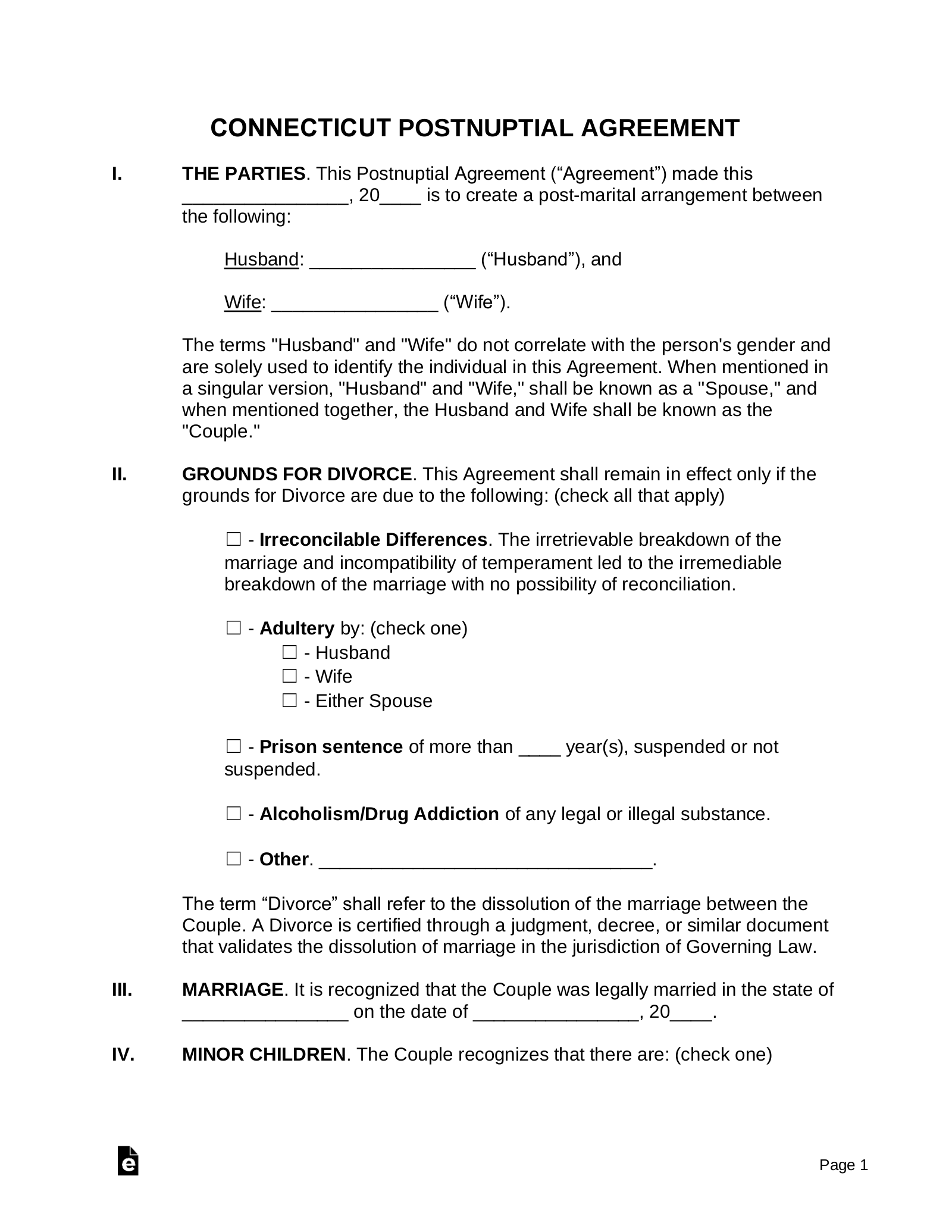Updated March 27, 2024
A Connecticut postnuptial agreement is a binding contract between spouses that formalizes rights to marital property should their marriage end in divorce or death.
Couples enter into postnuptial agreements after they have married. This distinguishes “postnups” from “prenups” or prenuptial agreements. Couples execute prenuptial agreements before marriage. Although both contracts can help people make more confident financial decisions, postnuptial deals may face different legal requirements.
Laws
Scrutiny: Principles of contract law generally apply in determining the enforceability of a postnuptial agreement. But postnuptial agreements face particular scrutiny and are more closely scrutinized than prenuptial agreements. A court may enforce a postnuptial agreement only if it complies with applicable contract principles and the terms of the agreement are both fair and equitable at the time of execution and not unconscionable at the time of dissolution. Bedrick v. Bedrick (2011).
Requirements: All of the following are required for postnuptial agreements:
- The agreement is made voluntarily;
- The agreement is made without any undue influence, fraud, coercion, duress, or similar defect;
- Each spouse has been given full, fair, and reasonable disclosure of the amount, character, and value of the property, jointly and separately held, and all of the financial obligations and income of the other spouse. This mandatory disclosure requirement is a result of a profoundly personal marital relationship.
Fairness: In determining whether a particular postnuptial agreement is fair and equitable at the time of execution, a court should consider the totality of the circumstances surrounding the implementation. A court may consider various factors, including,
-
- The nature and complexity of the agreement’s terms,
- The extent of and disparity in assets brought to the marriage by each spouse
- The parties’ respective age, sophistication, education, employment, experience, prior marriages, or other traits potentially affecting the ability to read and understand an agreement’s provisions, and
- The amount of time each spouse has to reflect upon the agreement after first seeing its specific terms and access to independent counsel before consenting.
Unconscionability: An agreement can be determined unconscionable – or unreasonable – if its enforcement would create an injustice to one or both parties. Unforeseen changes in the relationship, such as having a child, loss of employment, or moving to another state, may render enforcement of the agreement unconscionable. Bedrick v. Bedrick (2011).


